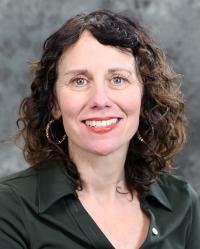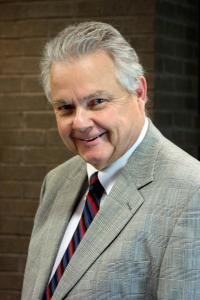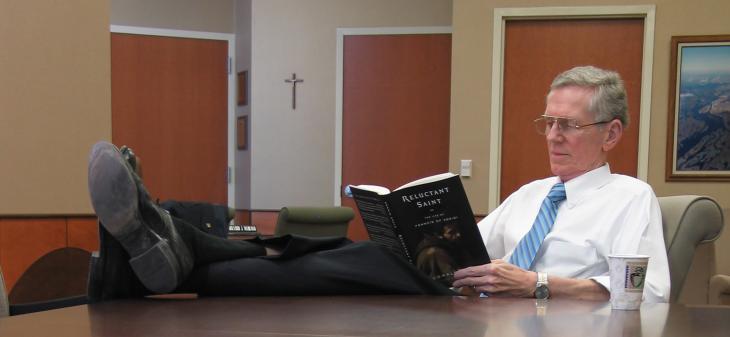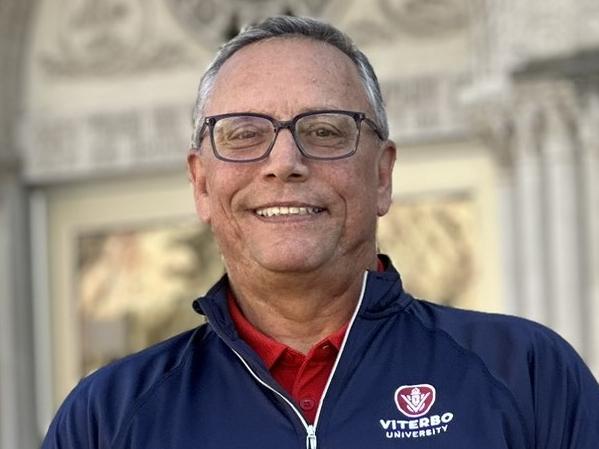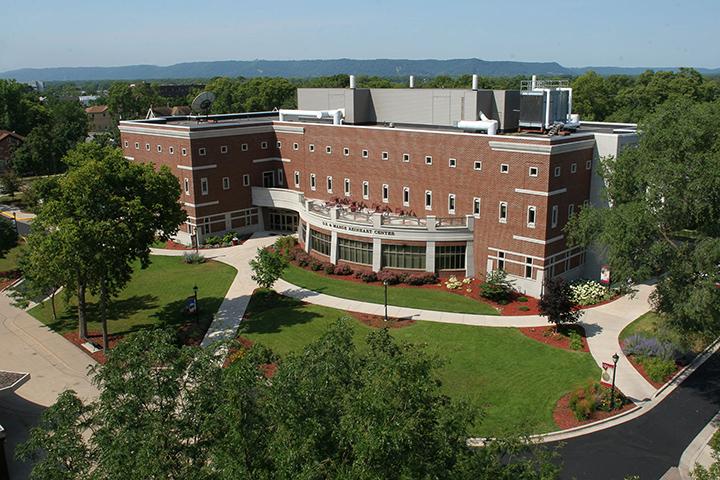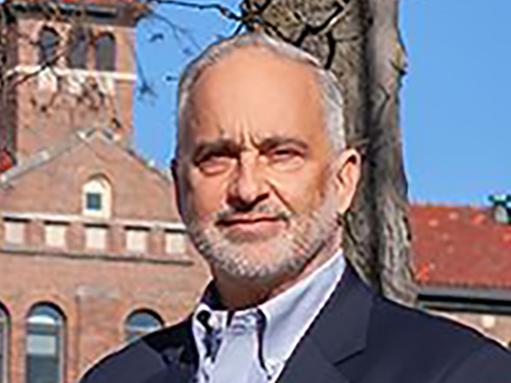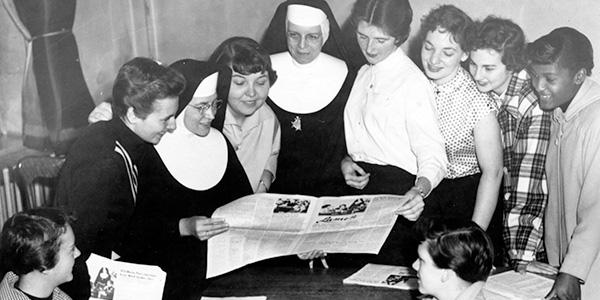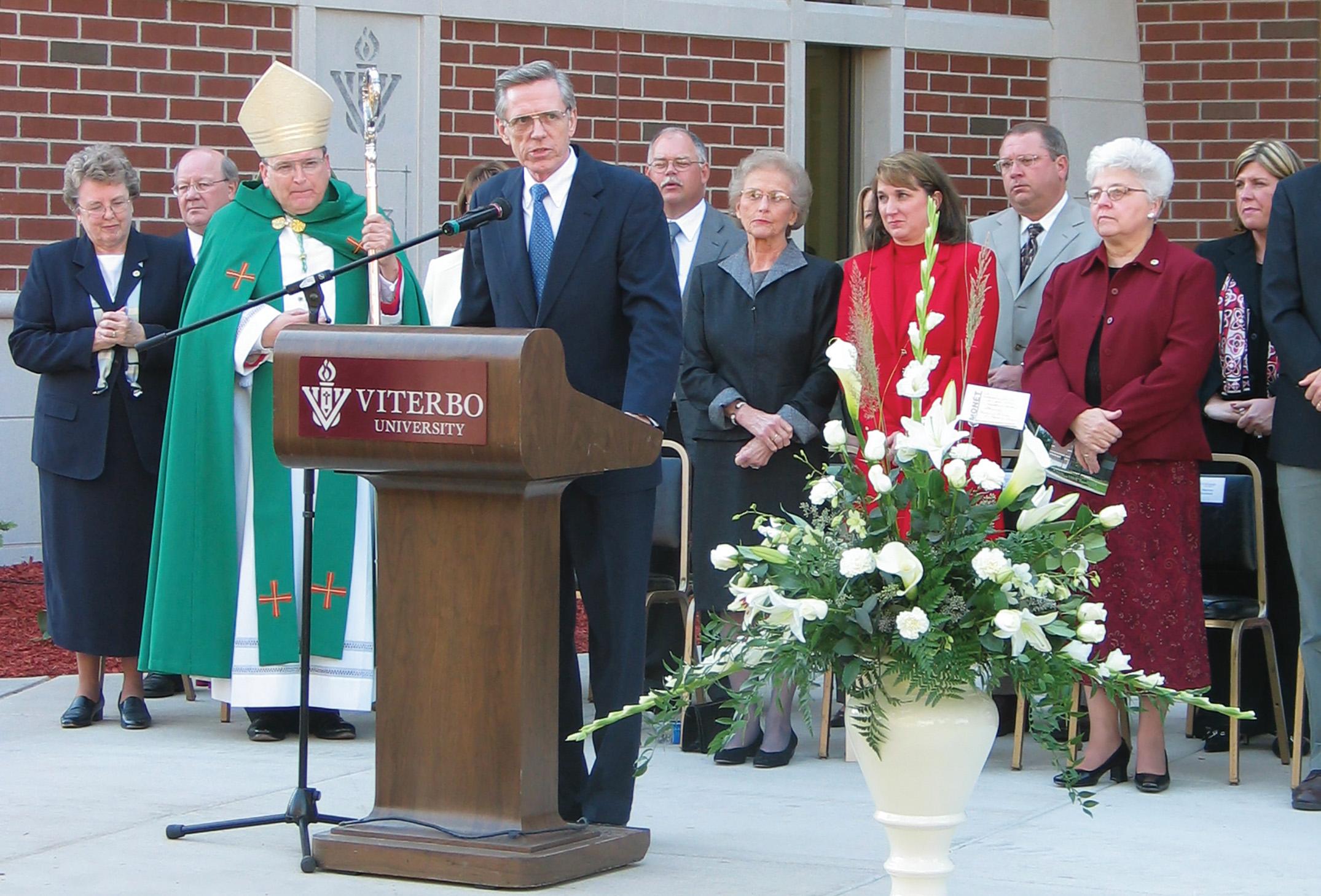
When William Medland came to Viterbo College in 1991, hired as the institution’s seventh president, he planned to stay for five years. By the time he stepped down as president in 2006, Viterbo had experienced 15 years of growth and transformation, going from a college undergoing financial difficulties to a financially secure, full-fledged university that had experienced 13 straight years of record enrollment.
“Bill Medland was a visionary from day one. He was a person who could see things whole,” said Marlene Weisenbeck, FSPA ’67, who chaired the Viterbo Board of Trustees for eight years during Medland’s presidential tenure. “Like a lot of institutions, Viterbo over its entire history has had periods of crisis. I would say that Viterbo, when Bill came, was at a pretty low ebb. There was a lot of ambivalence on campus, a lack of confidence on the part of faculty that it could be successful.”
Almost 20 years after Medland’s time in office ended, Viterbo is taking another leap forward and establishing its first endowed chair. A gift of $1.25 million from an anonymous donor will be used to establish the William Medland Chair of Educational Leadership to honor the memory of the university’s longest-serving president.
“Endowed chairs are used to honor excellence and perpetuate values and important work,” said Tonya Wagner, Viterbo’s vice president for academic affairs and institutional effectiveness. Endowments for chair positions could be used to augment salary, allow for additional release time to present at important academic conferences, engage in scholarly research, or participate in other kinds of leadership events.
“Chairships create legacy built on values, and the legacy is really built on the importance of service to community and others. The legacy of the Franciscan Sisters is really developing that next generation of educational leaders,” Wagner said. “The most important thing is it adds prestige and honor and recognizes the excellence in that person, but it also allows them to dedicate more time to scholarship and dissemination of their work to others.”
As implied by the title, the Medland Chair will be part of Viterbo’s School of Education, and in early March it was announced that the first holder of that position would be Scott Mihalovic, Viterbo’s educational leadership program coordinator since 2014.
A lifelong La Crosse resident who was a longtime and highly respected principal with the La Crosse School District before coming to Viterbo, Mihalovic oversees programs providing training for educators interested in becoming principals, superintendents, and directors of student services or instruction.
“Bill Medland and I had a great relationship, and that’s what makes this honor special to me,” Mihalovic said. “The beautiful part of this opportunity is the value that’s bestowed on educational leaders and how that’s going to come to fruition to allow more good things to happen in the future.”
In his 15 years as president (1991–2006), Medland expanded Viterbo’s scope and impact through new programs, innovations, and developments that transformed Viterbo College into Viterbo University. Building upon the legacy of the Franciscan Sisters of Perpetual Adoration, Medland recognized the importance of developing ethical leaders and made that a core part of Viterbo’s mission.
“Under his leadership, there was a rebirth of our Franciscan mission. He was able to build strong relationships with the FSPA,” said Tom Thibodeau, distinguished professor of servant leadership. “And he was always looking for ways in which Viterbo could grow and take its rightful role in the community.”
College into Viterbo University. Building upon the legacy of the Franciscan Sisters of Perpetual Adoration, Medland recognized the importance of developing ethical leaders and made that a core part of Viterbo’s mission.
“Under his leadership, there was a rebirth of our Franciscan mission. He was able to build strong relationships with the FSPA,” said Tom Thibodeau, distinguished professor of servant leadership. “And he was always looking for ways in which Viterbo could grow and take its rightful role in the community.”
How transformative was Medland? Here’s a taste (and keep in mind he would say this was all a team effort):
- Undergraduate enrollment grew from 753 to 1,495 during his tenure, while graduate program enrollment went from 48 to 768.
- He initiated graduate degrees in business, nursing, servant leadership, and educational leadership, and expanded education certificate programs.
- New undergraduate degrees added included social work, criminal justice, and music theatre, and adult education and online programs were greatly expanded.
- A new governance system was implemented, with the creation of five academic schools within the college.
- The annual budget grew from $8.9 million to $38.4 million, while the endowment increased from $2.7 million to $17 million.
- The Viterbo campus expanded with the addition of the Reinhart Center, Mathy Center, Rose Terrace, and the Outdoor Athletics Complex.
- The D.B. Reinhart Institute for Ethics in Leadership was established.
The Ethics Institute was especially important to Medland, serving as a way to emphasize the Franciscan values on which Viterbo was founded. Medland was looking at the long-term picture, Thibodeau said, trying to ensure that Viterbo would thrive while staying true to the vision of the founding Sisters.
A group of academics studying the survival of religiously affiliated colleges suggested that one way to stay on mission was to establish an institute or center dedicated to that. Medland was aware of their work and was sure that an ethics institute was the way to honor and perpetuate the Franciscan mission in a way that doesn’t depend on language of the institution’s religious founding.
“I give Medland a lot of credit. There weren’t many institutions looking at it like he was,” said Rick Kyte, who has been director of Viterbo Ethics Institute since it began almost 25 years ago.
Kyte was part of the academic group studying religious colleges prior to coming to the Ethics Institute, though he hadn’t studied Viterbo. In fact, he hadn’t heard of Viterbo when he was recruited to head the Ethics Institute, so he asked a friend who was a professor at a Minnesota private university. “He said, ‘I don’t know a lot about the college, but Bill Medland would be great to work for,’” Kyte said.
According to Thibodeau, Medland thought one of the best decisions he ever made was hiring Kyte. Medland expected the Ethics Institute to be a hub around which the university revolved, infusing ethics into curriculum and campus life at every level, and he let Kyte have complete autonomy on how to get that done.
“Bill Medland taught me so much about leadership,” Kyte said. “He knew that for me to bring about the kind of transformative change we needed, he had to be seen as stepping back from the Ethics Institute.”
Kyte is the closest thing Viterbo has had to an endowed chair, designated as an endowed professor of ethics in 2015, and he was enthusiastic about the creation of the Medland chair position and what it could mean for Viterbo.
“Endowed chairs and professorships are really public statements about what an institution is committed to,” Kyte said. “I think it’s the kind of long-term move Viterbo needs to do more of.”
And it probably will.
While the William Medland Chair of Educational Leadership might be Viterbo’s first endowed chairship, Wagner predicted it would not be the last. “It’s a priority here to uphold really great academic work aligned to service, and we will definitely be working to build chairships as part of our core strategy,” she said.


